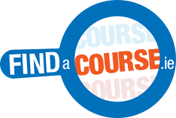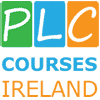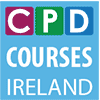Course description
Course Details
This programme is designed for people who wish to gain an awareness of drug and alcohol misuse and practice methods of counselling clients who misuse substances. The objectives of the course are to enable learners to: (1) obtain a better understanding about drugs and alcohol misuse, (2) obtain knowledge about the different types of drugs available and their side effects and use, (3) obtain a better understanding why people take drugs, (4) gain a better understanding about why people use Alcohol, (5) find out what treatment is available in your area and how to access it, (6) find out how to set up a drug or alcohol abuse treatment programme in your area, and to (7) understand the principles of drug and alcohol misuse counselling.
Students receive a course manual, assignments and studyguide plus Tutor support. The course documentation for this ABC accredited course is detailed and easy to read. Your Tutor will support you throughout the duration of the course. Our student support team are also available for any other queries that you may have whilst completing your course. You can be assured that support is available for your course, so there is no need to struggle or feel isolated during your studies.
Topics Covered in this Course
Unit 1: Introduction
General introduction
Social drinking and drug abuse
Information on drugs imports into Ireland and the European Union
Unit 2: The A-Z of drugs – effects, risks and the law
Introduction
Drugs and the law
Overview of individual drugs
Unit 3: Alcohol abuse
Binge drinking
The effect of alcohol on the human body
Alcohol and crime
Unit 4: Why people use drugs and alcohol
Attitudes about drugs
Unit 5: Drug and alcohol prevention and awareness
Drug and alcohol prevention programmes in Ireland
Unit 6: The basics of counselling
The role of the counsellor
The basics of counselling
Guidelines for good practice and care
Unit 7: Traditional Counselling Styles
Individual therapy
Couples therapy
Family therapy
Group therapy
Who goes to counselling?
Unit 8: Counselling for Alcohol problems
Introduction
Identifying alcohol problems
When a client may seek counselling
Treatment strategies
The sessions
Unit 9: Counselling for Substance Misuse
Types of illegal drugs
What causes substance abuse?
Identifying substance abuse
When a client may seek counselling
The aims of substance abuse counselling
Treatment approaches
The therapeutic process
The sessions
Who should complete this course?
People considering a career in Counselling.
Parents, Teachers and Youth workers.
People who wish to gain an introductory qualification in Drug and Alcohol Counselling and wish to study at their own pace, and in their own time.
Entry Requirements / Prerequisites
None.
Assessment
This course is assessed through a series of tutor marked assignments. There is no exam with this course.




 Distance Learning and Online Courses are offered in a number of different formats, these include correspondence courses (by post), online via computer or a combination of online and classroom instruction (blended learning).. View
Distance Learning and Online Courses are offered in a number of different formats, these include correspondence courses (by post), online via computer or a combination of online and classroom instruction (blended learning).. View  Further Education and PLCs (Post Leaving Cert Courses) have become a popular alternative to the CAO system here in Ireland. PLC Courses are validated by QQI (Quality & Qualifications Ireland) at levels 5 & 6 of the NFQ.. View
Further Education and PLCs (Post Leaving Cert Courses) have become a popular alternative to the CAO system here in Ireland. PLC Courses are validated by QQI (Quality & Qualifications Ireland) at levels 5 & 6 of the NFQ.. View  Continuous Professional Development (CPD) helps to keep job skills and professional knowledge up to date and ensures the standard of registrations & qualifications are maintained.. View
Continuous Professional Development (CPD) helps to keep job skills and professional knowledge up to date and ensures the standard of registrations & qualifications are maintained.. View  Evening courses and part time learning options are a great way to enhance a CV, to socialise and make friends, as well as learn something completely new. There are an abundance of night courses and evening classes available.. View
Evening courses and part time learning options are a great way to enhance a CV, to socialise and make friends, as well as learn something completely new. There are an abundance of night courses and evening classes available.. View